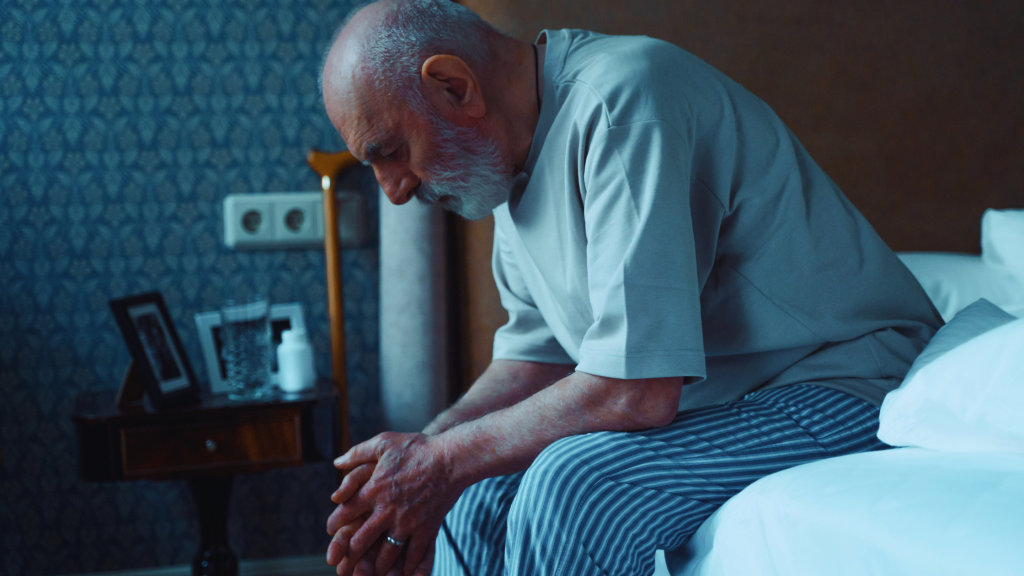Loneliness among seniors has reached epidemic proportions. Recent studies show that more than one-third of adults aged 45 and older report chronic loneliness, with the problem becoming even more severe for those over 65. This isn’t just about feeling sad—prolonged isolation can have devastating effects on physical and mental health, increasing the risk of depression, cognitive decline, and even premature death.
The good news? Isolation and loneliness are preventable and treatable conditions. With the right strategies, support systems, and professional help, older adults can rebuild meaningful connections and reclaim their sense of purpose. Understanding the root causes and implementing targeted solutions can make all the difference in transforming golden years from lonely to fulfilling.
Key Takeaways
- Social isolation among seniors is a serious health crisis that requires immediate attention from families, communities, and healthcare providers
- Multiple evidence-based interventions exist including technology solutions, community programs, and professional mental health support
- Senior therapy services in New Jersey provide specialized treatment for loneliness-related depression and anxiety in older adults
Understanding the Scope of Senior Isolation
Senior isolation affects millions of older adults across the United States. The problem became particularly acute during the COVID-19 pandemic, but its roots run much deeper. Factors like retirement, loss of spouse or friends, mobility issues, and health problems create a perfect storm for social disconnection.
Research indicates that chronic loneliness triggers the same stress responses as physical pain. The body releases cortisol and other stress hormones, leading to inflammation, weakened immunity, and increased risk of cardiovascular disease. For seniors, these physiological changes can accelerate aging and worsen existing health conditions.
The mental health implications are equally concerning. Isolated seniors face significantly higher rates of depression, anxiety, and cognitive decline. Without regular social stimulation, the brain loses its natural resilience against dementia and Alzheimer’s disease.
Recognizing the Warning Signs
Family members and caregivers should watch for subtle indicators that an older adult may be experiencing isolation. These signs often develop gradually and can be mistaken for normal aging.
Behavioral changes frequently signal growing isolation. Seniors may stop participating in activities they once enjoyed, neglect personal hygiene, or show decreased interest in maintaining their living space. Sleep patterns often shift dramatically, with some individuals sleeping excessively while others develop insomnia.
Emotional symptoms manifest as persistent sadness, irritability, or mood swings. Previously outgoing individuals may become withdrawn and reluctant to engage in conversations. Some seniors express feelings of being “invisible” or forgotten by society.
Physical indicators can include unexplained weight loss or gain, frequent complaints of aches and pains, and increased susceptibility to infections. These symptoms often result from the stress and poor self-care associated with prolonged loneliness.
Building Meaningful Connections Through Technology
Modern technology offers unprecedented opportunities to combat senior isolation. Video calling platforms like Skype, FaceTime, and Zoom enable face-to-face conversations with family members regardless of geographic distance. Many seniors report that seeing facial expressions and body language during calls makes them feel more connected than traditional phone conversations.
Social media platforms designed specifically for older adults provide safe spaces to reconnect with old friends and make new ones. These platforms often feature simplified interfaces and enhanced privacy controls that address common concerns about online safety.
Smart home devices equipped with voice assistants can provide companionship and mental stimulation. Seniors can ask questions, play games, listen to music from their youth, or even engage in simple conversations when no one else is available.
Virtual reality technology is emerging as a powerful tool for combating isolation. VR programs allow seniors to “visit” distant places, attend concerts, or participate in group activities from the comfort of their homes. Early research suggests these experiences can significantly improve mood and reduce feelings of loneliness.
Community-Based Solutions and Programs
Local communities across New Jersey and beyond are developing innovative programs to address senior isolation. Adult day centers provide structured social activities and meal programs that encourage regular interaction. These centers often offer transportation services for seniors who can no longer drive independently.
Intergenerational programs pair older adults with younger volunteers for mutual benefit. Seniors share their wisdom and life experiences while gaining energy and fresh perspectives from younger participants. These relationships often evolve into meaningful friendships that extend beyond formal program boundaries.
Senior centers have expanded their offerings to include diverse activities that cater to various interests and abilities. From art classes and book clubs to fitness programs and technology workshops, these venues provide multiple opportunities for social engagement.
Volunteer opportunities give seniors a sense of purpose while naturally facilitating social connections. Many older adults find fulfillment in mentoring programs, community gardens, or charitable organizations where they can contribute their skills and experience.
The Role of Professional Mental Health Support
When isolation leads to clinical depression or anxiety, professional intervention becomes essential. Mental health therapy centers in NJ specialize in treating age-related psychological challenges and understand the unique needs of older adults.
Cognitive Behavioral Therapy (CBT) has proven particularly effective for treating loneliness-related depression in seniors. This approach helps individuals identify negative thought patterns and develop healthier coping strategies. Therapists work with clients to challenge beliefs about aging and social worth that may contribute to isolation.
Group therapy sessions provide dual benefits by addressing mental health concerns while simultaneously creating social connections. Participants often form supportive relationships that continue beyond formal therapy sessions.
Family therapy can help address intergenerational conflicts or communication barriers that contribute to senior isolation. These sessions teach family members how to provide emotional support while respecting the older adult’s independence and dignity.
At Exceptional Wellness Counseling, experienced therapists understand that treating senior isolation requires a comprehensive approach. Senior therapy NJ services address not only the symptoms of loneliness but also the underlying factors that contribute to social disconnection.
Creating Sustainable Support Networks
Long-term success in combating senior isolation requires building robust, sustainable support networks. This involves creating multiple layers of connection that can adapt to changing circumstances and health conditions.
Family networks form the foundation of most senior support systems. Regular check-ins, shared activities, and clear communication channels help maintain strong family bonds. Adult children should be trained to recognize signs of isolation and know when to seek additional help.
Friendship circles may need intentional cultivation as peers face their own health challenges or pass away. Encouraging seniors to maintain existing friendships while remaining open to new relationships helps ensure continued social connection.
Professional support teams should include healthcare providers who understand the connection between social isolation and physical health. Regular wellness checks can identify early warning signs and trigger appropriate interventions.
Community connections provide stability when other support systems face disruptions. Involvement in religious organizations, neighborhood groups, or hobby clubs creates backup social networks that can step in during challenging times.
Moving Forward: A Call to Action
Combating senior isolation requires coordinated effort from families, communities, and healthcare providers. The cost of inaction—measured in human suffering, healthcare expenses, and lost wisdom—is simply too high to ignore.
Families should prioritize regular contact with older relatives and remain alert for signs of growing isolation. Communities must continue developing age-friendly programs and services that promote social connection. Healthcare systems need to screen for loneliness as routinely as they check blood pressure or cholesterol levels.
If you or a loved one is struggling with isolation and its mental health consequences, professional help is available. Exceptional Wellness Counseling offers specialized senior therapy services throughout New Jersey, providing compassionate, evidence-based treatment for loneliness, depression, and anxiety in older adults.
The golden years don’t have to be lonely years. With proactive intervention, strong support systems, and professional guidance when needed, every senior can maintain meaningful connections and continue thriving throughout their later years.




